Farmers are being urged by the Department of Agriculture to take particular care in relation to their own personal safety and that of family members as the country braces itself for the so-called ‘beast from the east’ Storm Emma.
The Department has said safety should remain paramount during the difficult weather that is forecast.
When herding livestock in remote areas, farmers are advised to ensure that somebody knows where they are and that they stay in contact.
On Monday, the Department participated in a meeting of the National Emergency Co-ordination Group (NECG), convened by the Department of Housing, Planning and Local Government, the lead Government department on severe weather incidents.
Potential for red warning
The Minister for Housing, Planning and Local Government Eoghan Murphy has said that the group will meet again on Tuesday to review the developing situation. He said that in the case of a status red warning, schools will close.
"It has the potential to become a status red warning in the east of the country on Thursday or Friday. We're keeping it under review.
"We expect that Thursday and Friday will be the worst days. It's a much shorter event [compared] to those we've experienced in recent times," he said.
Met Éireann has issued a weather advisory, indicating that Ireland is facing a very unusual extremely cold period, with precipitation affecting the east and southeast of the country from Tuesday night (27 February).
Sustained very cold conditions, possibly only rising to 0 degrees in daytime and accompanied by strong winds, are indicated. These conditions will persist until Friday 2 March at least.
Water
The more significant effects for farmers concern the provision of water, shelter and feed to livestock, whether housed or being outwintered.
It is essential that water pipes in the farmyard and also leading to outside water troughs are properly insulated and prevented from freezing up, the Department advises.
This is particularly important at this time when cows are calving and sheep lambing, giving rise to a heightened demand for water.
It also advises:
In the case of sheep flocks, it is essential that they are brought to a sheltered area during the worst of this event.In order to ensure a safe working environment and also facilitate the movement of essential goods on to and off farm, the farmyard and its environs should be fully gritted or sanded. All machinery should be correctly stored, maintained properly and, where necessary, heating should be provided to ensure that milking equipment and other critical plant does not freeze up. Finally, all those working on farms are urged to take particular care in relation to their own personal safety and that of family members, which should remain paramount during this difficult weather.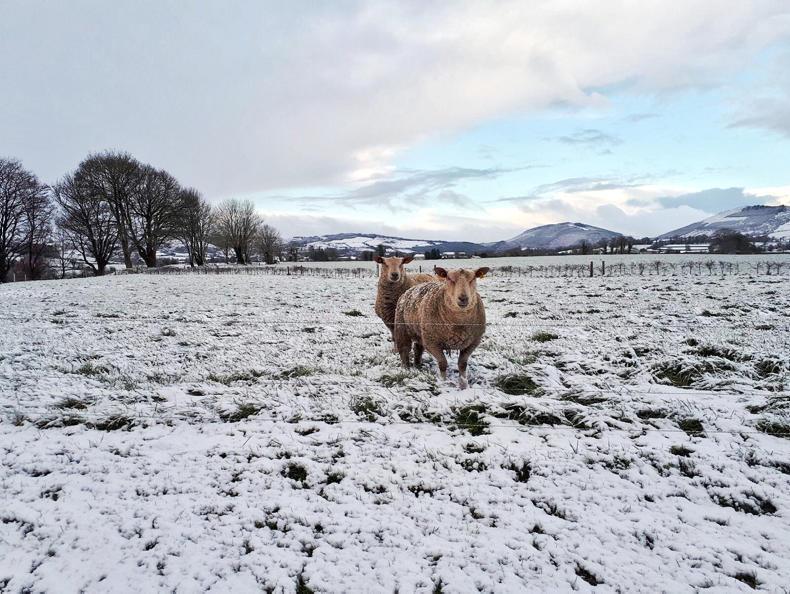
Charollais rams in the snow in north Tipperary.Charollais rams in the snow in north Tipperary.
Animal welfare issues
For any animal welfare issues arising from this severe weather event, farmers are advised to keep in touch with their Teagasc adviser, their veterinary practitioner or to contact the Department of Agriculture, Food and the Marine animal welfare helpline on call save 0761 064408 or direct line 01 6072379.
ESB warning on Storm Emma
ESB Networks has warned that, given the forecast for the days ahead, damage may occur to the electricity network. ESB Networks has a full emergency response in place to address any power outages.
The electricity network is built and continually upgraded to withstand events such as these, but extreme weather, heavy snowfalls and freezing temperatures can affect underground and overhead electricity cables and wires.
ESB Networks will have advised customers about planned outages taking place this week in order to carry out essential maintenance and repairs – the ESB has confirmed that all planned outages have been cancelled for this Wednesday, Thursday and Friday and will be rescheduled at a later date.
Low-hanging or fallen wires
Snow and ice can damage the electricity network by causing electricity wires to hang low or even fall and the ESB is advising that these wires will still be live and are extremely dangerous.
It advises:
Never ever approach or touch electricity network wires under any circumstances. Snow may also cause trees and branches to fall across or lean on to electricity lines. Please do not approach or touch any fallen wires or the tree or branch that they are touching. Report these dangerous situations immediately by calling 1850 372 999.In the event of power outages, crews from ESB Networks will be dispatched to the affected areas without electricity supply, making the electricity network safe and assessing the damage, so that they can restore power as quickly and effectively as possible.
However, heavy snows may impede access to damaged infrastructure, so outages may take longer than usual to repair.
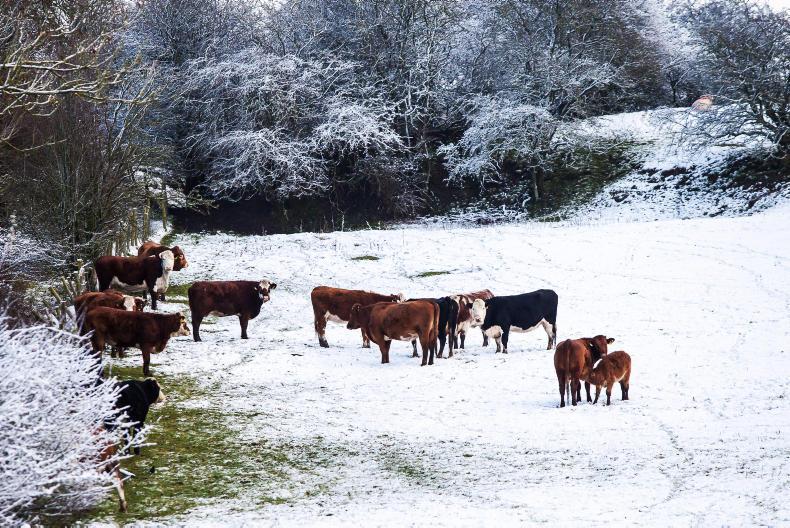
Stock images of Fresh snow on the curragh (Photo:Philip Doyle)ESB Networks has asked its customers to be prepared to be without electricity. In case their area is hit:
Have plenty of food and water available.Have torches with spare batteries available.Make sure your phone is charged and, if possible, have a phone charger at hand for your car.Check that elderly or vulnerable relatives and neighbours are prepared to be without electricity.If you have electric gates, please check you know how to work them manually.Irish Red Cross on standby
The Irish Red Cross has been requested by the HSE to identify its vehicle resources – namely road ambulances, off-road ambulances and 4x4 vehicles – on a county-by-county basis in advance of the onset of Storm Emma.
The charity was also asked to assess its volunteer availability to crew these vehicles.
These requests were made of the charity’s voluntary ambulance division at a meeting of the NECG on Monday where similar requests have been made to other Irish voluntary emergency services.
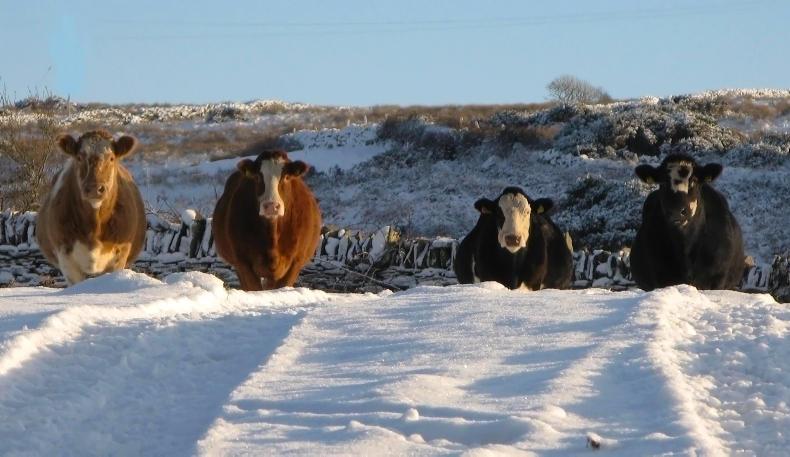
Irish Red Cross national director of units Tony Lawlor said: “While both State and voluntary emergency bodies need to prepare for the worst-case scenario, the Irish Red Cross and other similar bodies have substantial experience in dealing with the expected conditions.
“The Irish Red Cross played a strong support role in the nationwide response to the heavy snow that fell in 2010 and 1982.”
The coming days are forecast to be exceptionally cold, with the worst period of the weather forecast to begin on Tuesday afternoon.
Up to 6cm of snow is to fall along parts of the east coast and up to 3cm along the east and southeast on Tuesday.
On Tuesday night, it will become very cold and frosty, with snow showers becoming fairly frequent across Leinster, east Ulster and southeast Munster.
There will also be a severe frost too, with temperatures falling to between -2 and -5 degrees.
Wednesday will be extremely cold, according to Met Éireann, with some further falls of snow at times.
These snow showers will be heaviest and most frequent across the eastern half of the country, with further accumulations expected, especially in east Leinster.
The freezing cold weather is forecast to continue into Friday.
Read more
Storm Emma: winter weather advice from Canada
How to manage cows and calves in extreme cold
Planning for a cold week ahead
Farmers are being urged by the Department of Agriculture to take particular care in relation to their own personal safety and that of family members as the country braces itself for the so-called ‘beast from the east’ Storm Emma.
The Department has said safety should remain paramount during the difficult weather that is forecast.
When herding livestock in remote areas, farmers are advised to ensure that somebody knows where they are and that they stay in contact.
On Monday, the Department participated in a meeting of the National Emergency Co-ordination Group (NECG), convened by the Department of Housing, Planning and Local Government, the lead Government department on severe weather incidents.
Potential for red warning
The Minister for Housing, Planning and Local Government Eoghan Murphy has said that the group will meet again on Tuesday to review the developing situation. He said that in the case of a status red warning, schools will close.
"It has the potential to become a status red warning in the east of the country on Thursday or Friday. We're keeping it under review.
"We expect that Thursday and Friday will be the worst days. It's a much shorter event [compared] to those we've experienced in recent times," he said.
Met Éireann has issued a weather advisory, indicating that Ireland is facing a very unusual extremely cold period, with precipitation affecting the east and southeast of the country from Tuesday night (27 February).
Sustained very cold conditions, possibly only rising to 0 degrees in daytime and accompanied by strong winds, are indicated. These conditions will persist until Friday 2 March at least.
Water
The more significant effects for farmers concern the provision of water, shelter and feed to livestock, whether housed or being outwintered.
It is essential that water pipes in the farmyard and also leading to outside water troughs are properly insulated and prevented from freezing up, the Department advises.
This is particularly important at this time when cows are calving and sheep lambing, giving rise to a heightened demand for water.
It also advises:
In the case of sheep flocks, it is essential that they are brought to a sheltered area during the worst of this event.In order to ensure a safe working environment and also facilitate the movement of essential goods on to and off farm, the farmyard and its environs should be fully gritted or sanded. All machinery should be correctly stored, maintained properly and, where necessary, heating should be provided to ensure that milking equipment and other critical plant does not freeze up. Finally, all those working on farms are urged to take particular care in relation to their own personal safety and that of family members, which should remain paramount during this difficult weather.
Charollais rams in the snow in north Tipperary.Charollais rams in the snow in north Tipperary.
Animal welfare issues
For any animal welfare issues arising from this severe weather event, farmers are advised to keep in touch with their Teagasc adviser, their veterinary practitioner or to contact the Department of Agriculture, Food and the Marine animal welfare helpline on call save 0761 064408 or direct line 01 6072379.
ESB warning on Storm Emma
ESB Networks has warned that, given the forecast for the days ahead, damage may occur to the electricity network. ESB Networks has a full emergency response in place to address any power outages.
The electricity network is built and continually upgraded to withstand events such as these, but extreme weather, heavy snowfalls and freezing temperatures can affect underground and overhead electricity cables and wires.
ESB Networks will have advised customers about planned outages taking place this week in order to carry out essential maintenance and repairs – the ESB has confirmed that all planned outages have been cancelled for this Wednesday, Thursday and Friday and will be rescheduled at a later date.
Low-hanging or fallen wires
Snow and ice can damage the electricity network by causing electricity wires to hang low or even fall and the ESB is advising that these wires will still be live and are extremely dangerous.
It advises:
Never ever approach or touch electricity network wires under any circumstances. Snow may also cause trees and branches to fall across or lean on to electricity lines. Please do not approach or touch any fallen wires or the tree or branch that they are touching. Report these dangerous situations immediately by calling 1850 372 999.In the event of power outages, crews from ESB Networks will be dispatched to the affected areas without electricity supply, making the electricity network safe and assessing the damage, so that they can restore power as quickly and effectively as possible.
However, heavy snows may impede access to damaged infrastructure, so outages may take longer than usual to repair.

Stock images of Fresh snow on the curragh (Photo:Philip Doyle)ESB Networks has asked its customers to be prepared to be without electricity. In case their area is hit:
Have plenty of food and water available.Have torches with spare batteries available.Make sure your phone is charged and, if possible, have a phone charger at hand for your car.Check that elderly or vulnerable relatives and neighbours are prepared to be without electricity.If you have electric gates, please check you know how to work them manually.Irish Red Cross on standby
The Irish Red Cross has been requested by the HSE to identify its vehicle resources – namely road ambulances, off-road ambulances and 4x4 vehicles – on a county-by-county basis in advance of the onset of Storm Emma.
The charity was also asked to assess its volunteer availability to crew these vehicles.
These requests were made of the charity’s voluntary ambulance division at a meeting of the NECG on Monday where similar requests have been made to other Irish voluntary emergency services.

Irish Red Cross national director of units Tony Lawlor said: “While both State and voluntary emergency bodies need to prepare for the worst-case scenario, the Irish Red Cross and other similar bodies have substantial experience in dealing with the expected conditions.
“The Irish Red Cross played a strong support role in the nationwide response to the heavy snow that fell in 2010 and 1982.”
The coming days are forecast to be exceptionally cold, with the worst period of the weather forecast to begin on Tuesday afternoon.
Up to 6cm of snow is to fall along parts of the east coast and up to 3cm along the east and southeast on Tuesday.
On Tuesday night, it will become very cold and frosty, with snow showers becoming fairly frequent across Leinster, east Ulster and southeast Munster.
There will also be a severe frost too, with temperatures falling to between -2 and -5 degrees.
Wednesday will be extremely cold, according to Met Éireann, with some further falls of snow at times.
These snow showers will be heaviest and most frequent across the eastern half of the country, with further accumulations expected, especially in east Leinster.
The freezing cold weather is forecast to continue into Friday.
Read more
Storm Emma: winter weather advice from Canada
How to manage cows and calves in extreme cold
Planning for a cold week ahead










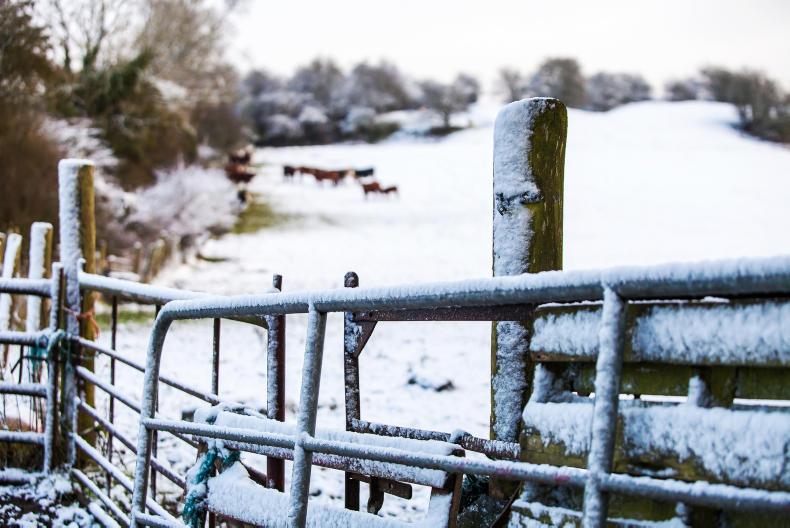
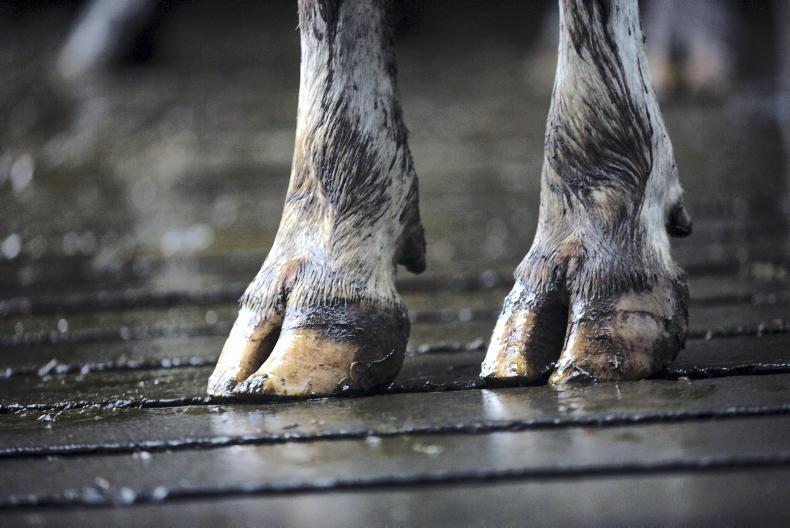

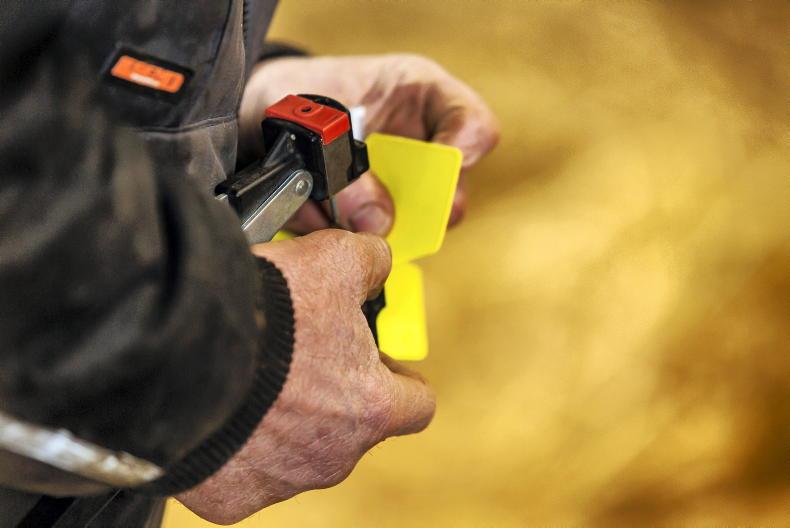
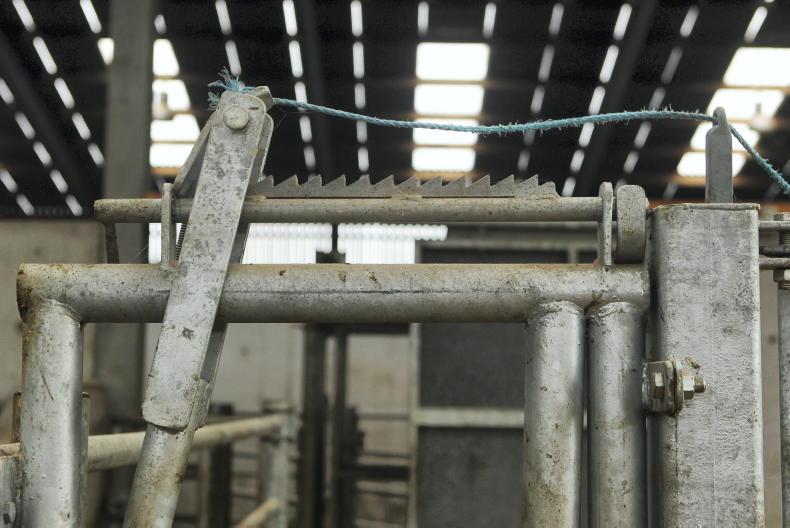
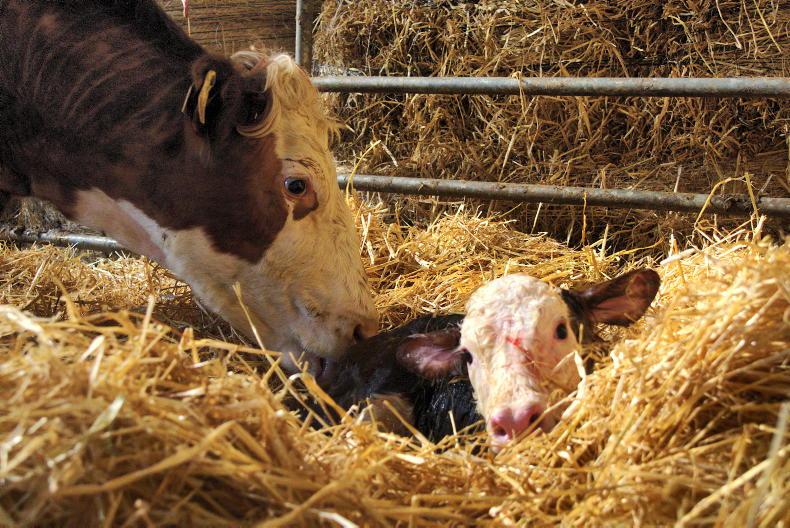
SHARING OPTIONS